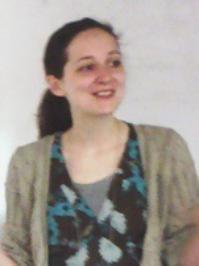Dr Zeta Brown, Faculty of Education, Health & Wellbeing

Dr Zeta Brown completed her PhD at the University of Wolverhampton in 2013 and joined the university in the same year as a Lecturer in Childhood, Family and Community Studies. Zeta’s PhD focused on primary education and was entitled ‘We just have to get on with it’: Inclusive teaching in a standards driven system. She teaches and module leads on undergraduate and postgraduate courses and supervises PhD and EdD students. In 2016, she gained SFHEA status with the Higher Education Academy.
She is leader of the Childhood, Youth and Families research cluster for the Centre of Developmental and Applied Research. She is currently involved in two funded projects and has published her research in a number of journals. She is also currently working on her second edited book for Routledge. She reviews for the journal Educational Futures and is an executive member of the British Education Studies Association.
The Early Years Pupil Premium (EYPP): an investigation of its use for looked-after children in one local authority.
The newly developed Early Years Pupil Premium (EYPP) is a governmental initiative providing eligible 3-4 year olds with additional funds to support their education (Gov.UK, 2016). The funding is £302.10 per annum. Eligibility is based on the family’s income and any income support or tax credits received. The exception to this rule is looked-after children who are automatically eligible for this funding. Looked-after children are children who have been in local authority (LA) care for 1 day or more, those who have left care under special guardianship or residential orders and those children adopted in England and Wales. The focus of EYPP is to support ‘closing the gap’ alongside established strategies for supporting children and their families.
The project will focus on investigating practitioners’ perspectives on the use of EYPP for looked-after children in one local authority. This is to ascertain what settings are using the funding for and, importantly, why they have made these decisions.


/prod01/wlvacuk/media/departments/digital-content-and-communications/images-18-19/iStock-163641275.jpg)
/prod01/wlvacuk/media/departments/digital-content-and-communications/images-2024/250630-SciFest-1-group-photo-resized-800x450.png)
/prod01/wlvacuk/media/departments/digital-content-and-communications/images-18-19/210818-Iza-and-Mattia-Resized.jpg)
/prod01/wlvacuk/media/departments/digital-content-and-communications/images/Maria-Serria-(teaser-image).jpg)
/prod01/wlvacuk/media/departments/digital-content-and-communications/images-2024/241014-Cyber4ME-Project-Resized.jpg)
/prod01/wlvacuk/media/departments/digital-content-and-communications/images-18-19/210705-bric_LAND_ATTIC_v2_resized.jpg)